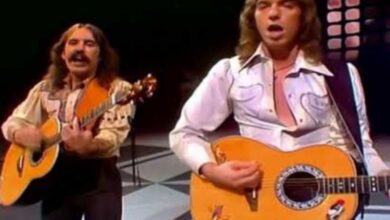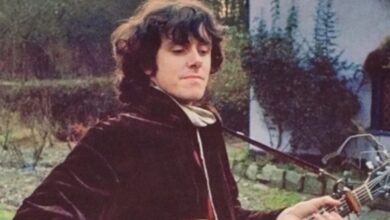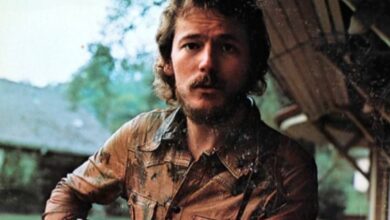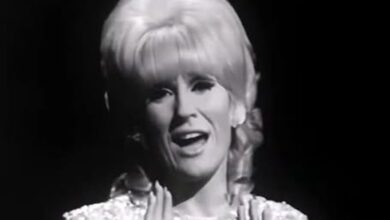Ozzy Osbourne’s ‘Mama, I’m Coming Home’ Returns to the Billboard Hot 100 After 33 Years, Carrying a Wave of Emotion
In the closing act of a life marked by chaos, brilliance, and unwavering devotion to his fans, Ozzy Osbourne left the world with one final gift—a performance that now feels like a tender farewell. On July 5, 2025, at Villa Park in Birmingham—the city where his journey began—he took the stage one last time for the Back to the Beginning concert. Among the evening’s many unforgettable moments, none cut deeper than his fragile yet fearless rendition of “Mama, I’m Coming Home.” It wasn’t just a song; it was a love letter set to music.
From the instant the opening chords rang out, the atmosphere shifted. Tens of thousands fell silent, as though everyone instinctively understood they were witnessing something beyond the ordinary. The newly released wide-angle footage captures that hush perfectly—a sea of faces, hands clasped, eyes fixed on a man who had given them decades of sound, rebellion, and raw emotion. His voice trembled, yet every syllable carried the weight of a lifetime.
There were no pyrotechnics, no elaborate set pieces—only Ozzy, stripped to his essence, delivering a song that had always been close to his heart. First released in 1991 and peaking at #28 the following year, “Mama, I’m Coming Home” was originally written for Sharon. But in that moment, it became something else entirely: a heartfelt farewell, not only to her but to all who had followed him through the years.
What made it haunting was the unspoken truth—those close to him later shared that Ozzy knew his time was short. Yet he didn’t step back; he leaned in. He gave everything he had to that night, and especially to that song. You could see it in his expression: gratitude, sorrow, acceptance. The audience responded in kind, lifting their voices with his, willing him through the final verses.
In the weeks after, footage of that “Mama, I’m Coming Home” performance spread rapidly. It wasn’t just devoted fans sharing it—musicians, journalists, and even those unfamiliar with his work were moved. The clip spoke to something universal: the need to say goodbye and the hope that someone will truly hear it.
Then, something remarkable happened. For the first time in 33 years, “Mama, I’m Coming Home” re-entered the Billboard Hot 100. Driven by millions of streams and thousands of downloads, the song found new life—not as a chart-topping single, but as a hymn of mourning and remembrance. It climbed not because of nostalgia, but because of love.
Few songs return to the charts carried on tears alone, but this one did. Its resurgence was a reflection of the bond Ozzy had forged with his listeners—a relationship built over decades, through every chaotic high and devastating low. That night’s final chorus resonated louder than any encore ever could.
The day of his funeral mirrored that performance in an uncanny way—the same stillness, the same collective grief, and the same song drifting softly through the streets of Birmingham. It played not from a stage, but from speakers, as a final embrace from the world to the man it had loved for so long.
Sharon Osbourne’s quiet hand gesture during the service—a reverse of the horns Ozzy would flash on stage—added to the poignancy. It was not just a farewell to her husband, but to the music, the madness, and the decades of shared triumph and sacrifice. In that moment, the song became more than a performance; it was a sacred keepsake.
It felt almost as if fate had orchestrated the goodbye. The timing of his last show, the lyrics of that song, the way it reemerged in the public’s heart—none of it seemed accidental. It was as though the universe allowed him one last chance to speak, exactly as he always had: through music.
There are rare moments in music that define more than just an artist—they define eras, emotions, and generations. This was one of them. Like Freddie Mercury’s last appearances with Queen or Johnny Cash’s final recordings, Ozzy’s farewell carried the full weight of a life lived loud, unapologetic, and true.
Tributes continue to flood the comments under videos of that performance, with fans sharing stories of how his music saved them, shaped them, or simply made them feel less alone. The phrase “Thank you, Ozzy. Rest easy.” has become a common refrain—each view, each stream, a candle lit in his honor.
Its reappearance on the charts was more than a music industry footnote—it was a cultural signal that some voices never fade. They echo through our speakers, our memories, and the most fragile moments of our lives. “Mama, I’m Coming Home” now plays not just as a song, but as a promise fulfilled.
Ozzy Osbourne may have left the stage, but his voice will never leave us. His last message wasn’t printed or posted—it was sung, and in a way that will outlast time itself.
Because in the end, he didn’t just come home. He became home—for millions who found pieces of themselves in his music, who were healed by his madness, and who now carry his memory forward with the same passion he gave to them. The Prince of Darkness is gone, but his light still burns bright.





